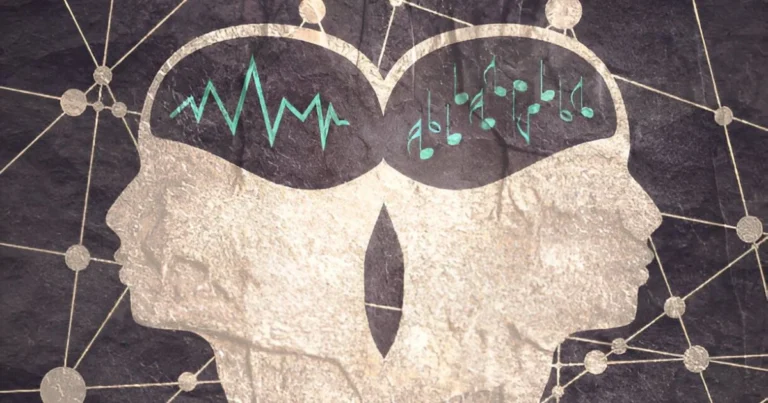How novels reshape the social brain
A stranger sits on a train, his gaze lost beyond the windowpane, a crumpled letter tucked into his jacket pocket. You don’t know him. And yet, within a few lines, the novel draws you into his mind, you begin to feel his dilemmas, anticipate his gestures. You accept the invitation. Effortlessly, you begin to grasp what he leaves unsaid, as though his silences were full of meaning. This silent pact between reader and character, this immersion into someone else’s inner world, may be one of the most powerful cognitive exercises we perform on a daily basis, often without even realizing it.
In recent years, brain science has taken a growing interest in this seemingly mundane act: reading fiction. And what it has uncovered goes far beyond pleasure or escapism. Reading a novel not only activates but also strengthens and transforms specific brain regions involved in understanding others’ intentions, decoding complex behavior, and navigating subtle social interactions. In other words, reading shapes how we perceive the social world, and that transformation leaves measurable traces in the brain.
The brain on narrative: When words become neural connections
One of the earliest studies in this field was conducted in 2013 by Gregory S. Berns and his team at Emory University. Over nine consecutive days, twenty-one students read the historical novel Pompeii by Robert Harris. Each morning, the participants underwent fMRI scans to monitor changes in brain connectivity. The results revealed increased activity in the left postcentral gyrus, a region involved in processing bodily sensations. This was interpreted as evidence of neural embodiment: the readers’ brains were simulating the physical experiences of the characters, as if they were happening to them.
But the effects extended beyond physical embodiment. In 2024, researcher Feyruz Usluoğlu of Toros University published a review highlighting another fascinating dimension of reading fiction, its impact on the brain networks involved in understanding others. Drawing on fMRI data and behavioral studies, she demonstrated that reading activates the brain’s default mode network, a system engaged when we think about ourselves, others, or complex social situations. In short, it’s the network we use to step into someone else’s shoes.
Her findings suggest that the more fiction someone reads, the more fluid and integrated the communication becomes between language-related brain areas and those involved in social cognition. Literary reading, then, functions as a kind of mental workout for our capacity to mentalize, that is, to imagine what others are thinking or feeling. Far from being mere entertainment, fiction becomes a daily training ground for the social mind, enhancing our ability to navigate a world that is increasingly relational and complex.
🔗 Read also: Reading in the brain: The hidden mechanisms of literacy acquisition
Literary fiction as a catalyst for social cognition
Another study by a team of American researchers shed light on how literary fiction can refine our ability to interpret thoughts, intentions, and emotions. To explore this, participants were randomly assigned to read either a passage from literary fiction, popular fiction, or nonfiction. Immediately afterward, they completed psychological assessments designed to measure their sensitivity to emotion and social inference.
The results were striking: those who read literary fiction scored significantly higher. They were better at identifying emotions through subtle cues, such as in the “Reading the Mind in the Eyes Test”, and more adept at interpreting characters’ intentions based on contextual hints, as assessed by tools like the Yoni Test. Unlike more formulaic texts, literary fiction often presents complex plots, ambiguous characters, and open-ended scenarios that demand active interpretation. The reader is constantly filling in the gaps, deciphering silences, and following characters’ internal shifts. In training the mind to decode such imaginative worlds, the reader gradually strengthens their real-life ability to understand others.
These findings marked a turning point in social cognition research by providing strong empirical evidence that literature can enhance our capacity for empathy and social reasoning. It’s a compelling reminder that reading is, at its core, a profoundly social act.
🔗 Explore further: Inside the writer’s brain (1/6): Planning or Improvising? Discover your writing style
Long-term effects on the social brain
The relationship between reading fiction and understanding others isn’t limited to short-term gains. Additional studies have shown that, over time, regular reading functions as a form of sustained training for our social brain. As we follow the thoughts of complex characters, grappling with their hesitation, contradictions, and hidden wounds, we activate the very same neural circuits used in our real-world interactions. The more we engage them, the more efficient they become.
One area of particular interest is the dorsomedial prefrontal cortex, which plays a key role in attributing mental states and imagining what others might think or feel. Research has found increased activation in this region among frequent fiction readers, whether they read or listen to novels. Fiction, by exposing us to human complexity, thus serves as a natural form of social cognition training. With repeated reading, we progressively enhance our ability to decode emotions, interpret intentions, and express empathy, skills that are essential for collective life.
🔗 Discover more: The written rebellion: Writing as healing and Resistance
When reading becomes a form of therapy
The benefits of fiction extend beyond neurotypical individuals. Research led by Professor József Fekete at the University of Pécs explored its potential therapeutic value for people with psychiatric disorders. His team focused on patients with schizophrenia and bipolar disorder, conditions often marked by difficulties in understanding others’ intentions and navigating social situations.
To assess the impact of fiction on these skills, the researchers used the Short Story Task (SST), in which participants read a literary short story and answered questions designed to evaluate their ability to infer characters’ mental and emotional states. The findings were encouraging: patients exposed to fiction performed better on mentalization tests than those who either read informational texts or didn’t read at all. In other words, after engaging with a fictional narrative, they were more capable of discerning what characters thought or felt, detecting intentions, and correctly interpreting social interactions.
These findings are far from anecdotal. They suggest that even small doses of fiction can play a role in reactivating social skills where they are compromised. Stories offer a structured, low-risk space in which to explore emotions and relationships. In reading, patients practice what they may struggle to do in real life: understanding others. And therein lies the therapeutic power of fiction. Through narrative, literature becomes a bridge between the reader’s inner world and the minds of others.
Clinically, these insights open new pathways for supporting individuals with mental health challenges. Educationally, they reaffirm that novels are more than entertainment, they are tools for human development. And at the societal level, they restore reading to its rightful place: as a deeply transformative act.
Reading a novel is not merely about following a storyline. It engages complex neural networks, sharpens our social intuition, and, with enough repetition, has the power to reshape how we see the world. In an era dominated by fast thinking and shallow interaction, novels may well be one of the last sanctuaries of human complexity, and a vital training ground for our social brain.
References
Berns, G. S., Blaine, K., Prietula, M. J., & Pye, B. E. (2013). Short- and long-term effects of a novel on connectivity in the brain. Brain Connectivity, 3(6), 590–600.
Kidd, D. C., & Castano, E. (2013). Reading literary fiction improves theory of mind. Science, 342(6156), 377–380.
Usluoğlu, F. (2024). How Does Reading Fiction Affect Us? International Journal of Behavior, Sustainability and Management, 11(21), 50–58.

Sara Lakehayli
PhD, Clinical Neuroscience & Mental Health
Associate member of the Laboratory for Nervous System Diseases, Neurosensory Disorders, and Disability, Faculty of Medicine and Pharmacy of Casablanca
Professor, Higher School of Psychology







